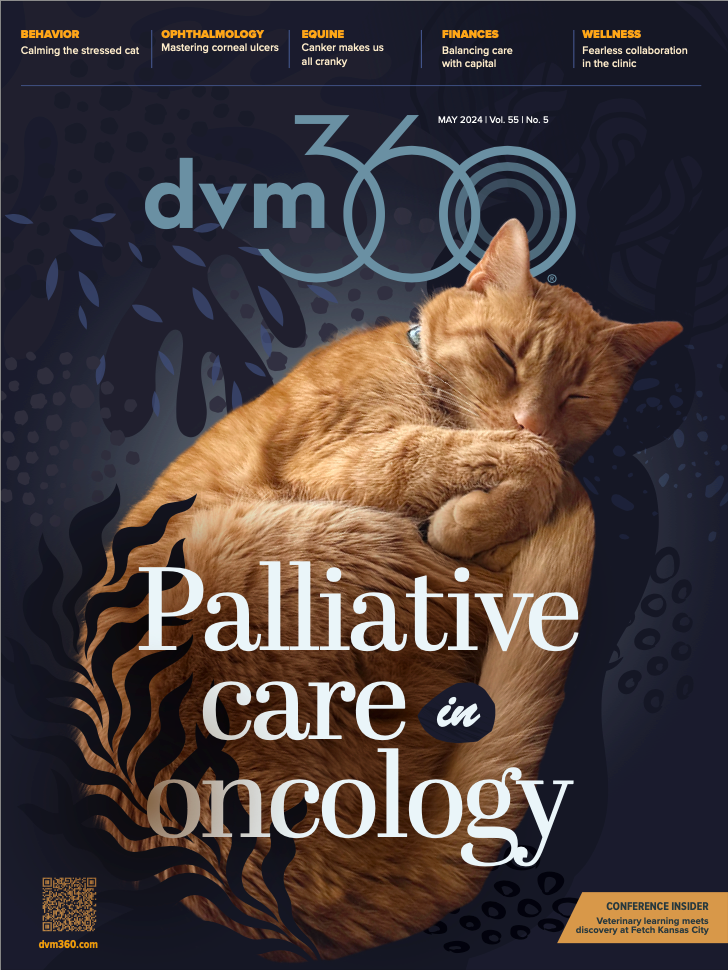The Dilemma: Practice builders
A veterinarian offers suggestions for growing an animal clinic and better serving the community.
Photo: ihorvsn/Adobe Stock

Editor’s note: All names and businesses in this dilemma case are fictitious, but the scenario is based on real occurrences.
The Link veterinary clinic was an excellent facility. For 22 years, it had served the companion pet needs of the community. However, the past 4 years were tumultuous, to say the least.
The practice was growing and the staff was increasing. Then COVID-19 hit. What followed, as everyone knows, was bizarre. Clients who had been inside were now outside. There was less person-to-person contact and there were more telemedicine meetings. There were inevitable personnel quarantines, staffing challenges, and significant financial pressures. As COVID-19 ran its course, practice normality started to resume.
Who would have thought that just about everyone would decide to get a new pet during the COVID-19 crisis? Veterinary practices became overwhelmed and could not meet the needs of the sudden increase in pet patients. In 2024, things finally settled down a bit and the pre–COVID-19 average client flow returned. It was now time for the hospital director at the Link animal clinic to call a staff meeting to discuss some innovative
practice building.
- An age-old practice builder has always been accessibility. It was decided that the after-hours clinic messages would not automatically advise clients to go to the closest emergency veterinary facility. Instead, staff members would take after-hours calls and give nonemergency advice while encouraging a follow-up appointment. Of course, all serious issues were immediately referred to an emergency center. This accessibility was greatly appreciated and remembered by clients in need.
- “If you build it, they will come.” Clinic hours should coincide with client availability. Many pet owners want to see the vet after work or on the weekends. Evening hours and weekend availability are practice builders, so the Link animal clinic staff decided to extend their evening and weekend hours.
- When pet owners from a multiple-pet household schedule several animals for care during the same appointment, they should be offered a discount. Multiple animal owners scrutinize their veterinary budget very closely and appreciate any discount gestures.
- Veterinary visits are stressful for clients. They worry about their pets, they worry about their pocketbook, they worry about managing the animals while at the clinic, and they often have to keep track of their children. When children are welcome, some of that stress decreases. Children’s activities, especially coloring books with pet-shaped crayons, were made available and were a welcome addition to the exam room.
- Humane organizations are our friends as well as practice builders. We should always work hand in hand to make the lives of the pets in our community safer and more humane. When there are fundraisers or fairs, we should participate. We should also provide coupons to assist with initial veterinary care for newly adopted animals.
The hospital director advised the staff that these practice-building activities would be integrated into the Link veterinary clinic protocols. Some staff disagreed but overall, most thought that these additions would increase client flow and clinic income and would be welcomed by pet owners.
The mission of any veterinary facility is to provide excellent pet care and to change and grow in the best interest of the community it serves. These practice-building steps are exactly what the Linc veterinary clinic needed to move forward.
Rosenberg's response
COVID-19 was bizarre. Hopefully, it was a once-in-a-lifetime occurrence. It actually overwhelmed veterinary practices with pet patients. We have now returned to reality. Progressive veterinary practices should never remain in a comfort zone. It is always important to move on to a greater standard of excellence. Implementing practice builders as was done at the Link veterinary clinic is a basic component of practice growth and improvement. This practice attitude benefits pet patients and clients as well as the profession.
Marc Rosenberg, VMD, is founder of Voorhees Veterinary Center in New Jersey. Although many of the scenarios Rosenberg describes in his column are based on real-life events, the veterinary practices, doctors, and employees described are fictional.
